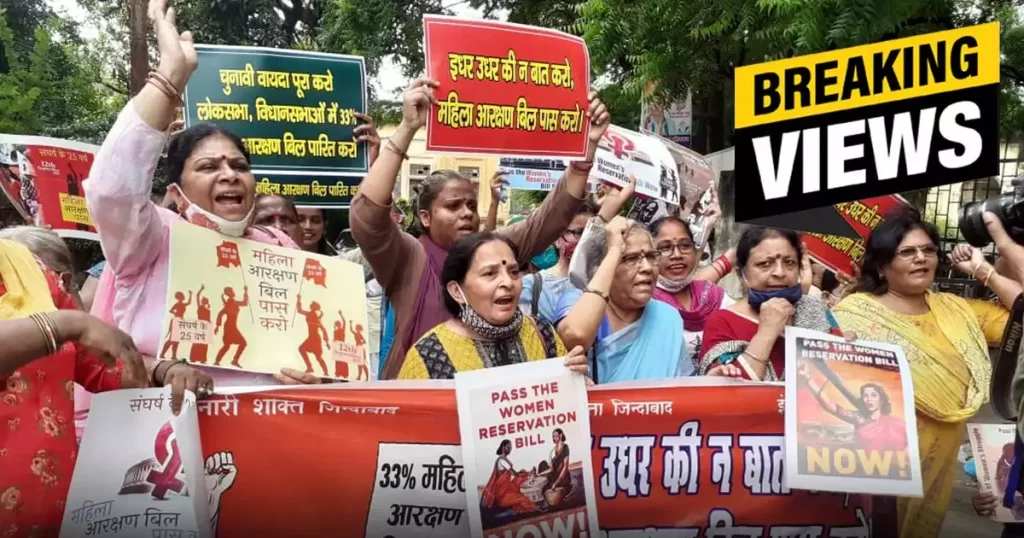Jahanvi Agarwal
The Nari Shakti Vandan Adhiniyam, or women’s reservation law, was approved by the Rajya Sabha on September 21, 2023, after garnering unanimous support in the Lok Sabha. There are 215 votes in support and 0 votes against the bill.
A two-thirds majority was required for approval of the bill, which Union Law Minister Arjun Ram Meghwal introduced on 19th Sept 2023 during the first session of the new Parliament.
In order to provide women a 33% reservation in the Lok Sabha and legislatures, the Constitution (One Hundred and Twenty Eighth Amendment) Bill, 2023, is being proposed.
The quota, however, cannot come into effect until 2029 since it cannot be implemented after the delimitation of seats, which will only happen after the subsequent census, which is most likely to take place after the general elections in 2024.
In a meeting held following the first extraordinary session of Parliament, the Union Cabinet had already approved the women’s reservation law.
The opposition was urged to support the women’s reservation bill by Home Minister Amit Shah, who also stated that any flaws could be fixed afterward.
The new government will undertake the census and the delimitation procedure right after the elections, Shah said, dismissing concerns that the bill’s implementation would be delayed. He also added that the process to making reservations for women in the Lok Sabha and state Assemblies a reality will be started.
Shah remarked that women’s reservation would become a reality after 2029 who intervened in the discussion of the Constitution (128th Amendment) Bill.
He further stated that the approval of the women’s reservation law will usher in a new era, and he reminded that Prime Minister Narendra Modi had just introduced the idea of women-led growth at the G20 Summit.
According to him, the government of Modi has been dedicated to empowering women ever since it took office.
Rahul Gandhi, a congressman, commented that the Women’s Reservation Bill was “incomplete” since it did not include a quota for Other Backward Classes (OBC).
Prime Minister Narendra Modi asserted that the bill intends to boost the participation of women in the Lok and Rajya Sabha and that it bill will further enhance our democracy.
Nearly half of India’s 950 million registered voters are women, yet they only make up 15% of the parliament and around 10% of state legislatures, placing the largest democracy in the world near the bottom of the global list for gender parity in legislatures.

